- Home
- Roger Taylor
The Waking of Orthlund Page 16
The Waking of Orthlund Read online
Page 16
Rather to his surprise, she smiled and answered him immediately. Even more to his surprise, she answered in a strange language, although he thought he detected fleeting overtones of the High Guards’ battle language. He gaped, and, surprised herself by this reaction, she mirrored his expression until realization dawned.
‘I’m sorry, Loman,’ she said. ‘I was so engrossed. I’d forgotten how fine a writer he was. And it’s such a beautiful language.’ Her face became thoughtful. ‘I wonder if any of the Fyordyn can still speak it,’ she said.
‘Memsa,’ Loman prompted her gently with a glance at the book.
Gulda nodded, and with a little sigh, returned to the present. ‘It’s a poem,’ she said.
‘A poem,’ Loman echoed, rather more coldly than he had intended.
Gulda eyed him. ‘An epic, historical poem,’ she added sternly. ‘It’s a record of an old oral tradition, and it’s probably the nearest thing we’ve got to an accurate source for information about the Alphraan.’
Loman jabbed a finger out into the void of the library and whispered heatedly. ‘You’ve just spent a considerable time rejecting endless books of history and reference. What’s so special about this . . . poem, that you couldn’t find in them?’ He braced himself for a blistering reply.
Gulda, however, let the comment pass. ‘If you search those books diligently, Loman,’ she said, ‘you’ll find most of them refer back to such works as this for their commentaries on the Alphraan. Those that don’t quote their sources are patently worthless.’ She looked at the small book. ‘There may be better than this, but it’s unlikely, and we haven’t the time to search anymore.’
There was a hint of urgency in her tone that again surprised Loman. ‘Whatever you say, Memsa,’ he said. ‘But I’m still utterly lost. What have you found?’
She inclined her head to indicate a door opposite where they were sitting. As they stepped through it, they entered one of the broad corridors that circled the library tower at each tier level. Large continuous windows filled the corridor with sunlight, and offered the two arrivals the familiar view of the village far below, and the rolling Orthlund countryside.
As they walked slowly round the corridor, they gradually exchanged this view for one of the mountains.
‘None of this is certain, Loman,’ Gulda began. ‘As I said, there may be other books in there, but this one chimes with my memory and no one knows much about the Alphraan except that they definitely did exist once.’
Loman prepared to listen reluctantly. Again he felt the strange disorientation that he experienced when thinking of Hawklan’s experiences at the Gretmearc. It was ever thus when Gulda spoke so rationally of ancient times.
Fear, he realized unexpectedly. Brutal and cruel men, training and fighting, hardship and suffering, all these he could face if need arose, but these ancient things . . . people – the name Sumeral came hesitantly forward – with their mysterious powers? That was different. What defence could he have against such creatures? The image of Hawklan came to him, amused and mildly reproachful. Just because you can’t answer a question doesn’t mean it can’t be answered, does it? You’re frightened because you’re ignorant. If you’re ignorant, then learn. Same old lesson yet again.
‘Loman, pay attention.’ Gulda’s voice cut across his renewed revelation.
‘I’m sorry, Memsa,’ he said. ‘I was just thinking about . . . Hawklan . . . Sumeral . . . everything.’
Gulda stepped in front of him and examined him intently. ‘Good,’ she said after a moment. ‘You should. And you’re right to be frightened when you do. That way we’ll be prepared, and we’ll stand a chance.’ She gave a satisfied grunt and slapped his arm briskly with the book, like an old comrade. ‘Now, pay attention.’
Steering him over to the window she pointed her stick up into the mountains. ‘Some tales say the Alphraan were created by Ethriss, like we were. Others say that they came about through some foul experiment by Sumeral but that He erred and they escaped His bondage and fled underground in search of their own peaceful destiny.’ She shrugged. ‘It doesn’t matter anyway. Suffice it to say that they existed and that they so angered Him that He sent the Mandrassni against them.’
She caught Loman’s look. ‘The Mandrassni were one of His experiments, beyond a doubt,’ she said, her mouth wrinkling in distaste. ‘They were about so high.’ She held out a hand to indicate the height of a small child. Loman noticed it was shaking slightly. ‘Like tiny Mandrocs only worse by far. Demented and wild. Hordes of them, skipping, bounding, clambering everywhere with their terrible screaming and those glittering short blades – double-edged – one in each hand . . . it didn’t matter how many you killed . . .’ Gulda turned away from him abruptly and fell silent.
When she spoke again, her voice was cold with control. ‘Some say that the Alphraan appealed to men for help but were refused and thence fled in bitterness. Others say that they allied themselves with Ethriss and promised to destroy the Mandrassni which were taking a dreadful toll of Ethriss’s armies.’ She paused. ‘A dreadful toll,’ she repeated softly. Then, brusquely, ‘Anyway, whatever the truth, the tale is that both they and the Mandrassni were destroyed utterly in a terrible battle deep below ground.’ Gulda fell silent again.
Loman was unaffected. ‘That’s a sad little story, Memsa,’ he offered casually. ‘But no different from countless other old tales, and what’s it got to do with our present problems?’
Gulda pursed her lips. ‘Loman, what does “phar’n” mean in the High Guard’s battle language?’ she asked.
Loman shrugged. ‘Sound. . . song, maybe.’
Gulda nodded. ‘The word “Alphraan” is derived from the ancient Fyordyn language this book is written in.’ She tapped the book against his chest by way of emphasis. ‘The same language that forms the basis of the battle language. “Alphraan” means people, or warriors, of sound. Perhaps even carvers of sound.’
Loman looked blank.
‘The Alphraan were apparently a gentle, peaceful people, Loman,’ Gulda continued. ‘All they had was Ethriss’s, or Sumeral’s, gift. The gift to use and shape sound.’
‘Music?’ queried Loman.
Gulda shook her head. ‘More than just music. It’s said that the last remnants of them, fleeing before the Mandrassni, deep into the roots of the mountains, learned to use their gift as a terrible weapon, and sent sounds echoing through their warrens that caused the Mandrassni not only to become lost and bewildered, but so enraged them that they fought and destroyed each other as they destroyed the last of the Alphraan.’
Loman had a momentary vision of dark winding tunnels choked with bodies, seething and struggling in a screaming tide of sound.
‘The labyrinth,’ he muttered softly to himself, suddenly chilled by Gulda’s seemingly innocuous tale.
Gulda caught the remark and looked at him uncertainly. Then she looked down at the book. ‘This telling ends poetically as you might expect,’ she said. ‘The last survivor of the Mandrassni wandered howling and lost through endless echoing tunnels until he came upon the last Alphraan dying silently in what had been their holy place. Filled with bloodlust, the demented creature leapt forward to strike this last victim, but the Alphraan, at the moment of dying learned the truth of his race’s gift and with a silent word shattered the Mandrassni into a myriad tiny sounds that would fly forever through the rocky heart of the mountains to tell all who could hear of the evil of Sumeral and the futility of his ways.’
Loman’s memory of the labyrinth welled up suddenly with Gulda’s last words as if her tale had caused some deep resonance.
‘You’ve gone pale,’ Gulda said.
‘It’s wandering all round that library, looking for fairy stories,’ Loman blustered in spite of himself.
‘No it’s not,’ said Gulda bluntly but with a hint of sympathy. ‘This tale has struck a chord somehow – almost literally – hasn’t it, Castellan? Traveller through the labyrinth.’
Loman did not
reply.
Gulda looked at the book again, and then out at the mountains. ‘With your knowledge, it’s as well you can’t feel the language of the original,’ she said grimly.
Loman struggled to get back to normality. ‘What are you saying, Memsa?’ he asked awkwardly. ‘That these Alphraan actually still exist and are up in the mountains, slowly destroying our – my – people?’
Gulda kept her gaze on the towering peaks. ‘Hawklan saw something,’ she said. ‘Gavor saw and heard something: something he called a killing song that struck that bird out of the sky. And something we can’t explain is affecting our would-be elite troops. Seriously affecting them.’
Loman did not speak. He himself had clearly identified the problem in his own mind and had rejected its obvious causes. Perhaps now it was his turn to face the strange other realities that he had tried to push to the edges of his mind ever since he had seen Hawklan’s black sword sliding down that long, still mound of weapons.
‘What shall we do?’ he asked finally.
Gulda tapped her stick on the floor thoughtfully, and then looked at him expectantly. He nodded.
‘Stop the mountain training,’ he said. ‘Then go and look for these . . . people. These Alphraan.’
Chapter 12
Burdened by Hawklan’s body, Isloman was unable to use his hands to protect himself from the approaching figure. His foot however, came up reflexively, though even as it did so he took in the familiar, now hesitating, form, and his shadow vision probed into the hood for confirmation.
‘Lady, forgive me,’ he said. ‘You startled me. I was preoccupied with dark thoughts.’
Sylvriss threw back her hood. Her face was controlled, but she could not keep the pain from her eyes. Isloman in turn, could not meet her gaze.
‘Lord Eldric’s looking for you, lady,’ he said, a rather helpless response.
Sylvriss nodded. ‘Only to tell me what I already know,’ she said. ‘He’ll not disturb my locked room.’
Her tone was unexpectedly harsh and Isloman frowned. Then he reproached himself. Had he too not lashed out blindly in the past in response to such pain?
‘What can I do?’ he said gently, moving past her and putting Hawklan on the bed.
‘Let me stay by Hawklan tonight,’ she replied immediately.
He looked at her in surprise. ‘Of course,’ he said. Then, hesitating, ‘But why?’
Sylvriss pulled her hood forward again. ‘I don’t know,’ she said softly. ‘I’m just . . . drawn here. Some need.’
Isloman felt himself frowning again. Despite the shade of her hood, he saw fear come into her eyes at this response, and even as he spoke he tried to call the words back. But they had a momentum of their own. ‘I understand your pain, lady,’ he said. ‘But who knows what his pain is? What pain keeps him from returning to us. He shouldn’t be burdened further.’
Sylvriss bowed her head. ‘I’m sorry,’ she said. ‘I didn’t think. I’ll leave you.’
His words spoken, Isloman could act again. He placed a hand on her arm to stop her then picked up a chair and placed it at the head of Hawklan’s bed. ‘Sit down,’ he said gently. ‘It’s me who didn’t think. I’m sorry. Whatever his pain I know Hawklan wouldn’t refuse you such a simple comfort after your terrible loss.’
The memory of the woman who had risked her own life to save his, a stranger’s, and who had ridden so determinedly, so hopefully, by his side only days before, washed over him, and he had difficulty speaking. ‘It’s just that I feel so helpless myself,’ he managed. ‘Unable to reach him. Just carrying him around and talking to him. It feels so futile when I remember what he’s given to me and to so many others.’
He took another chair and sat down on the opposite side of his silent friend. Sylvriss reached out and took one of Hawklan’s hands. For a moment, Isloman thought he saw the hand tighten gently about the Queen’s, but she made no response.
Silence hung between them. Then, unexpectedly, she said, ‘Tell me how Rgoric died, Isloman.’ Isloman started slightly, and for a moment he searched around for an excuse. Sylvriss anticipated him. ‘I know the Goraidin will have told you,’ she said. ‘Now you tell me. There’ll be less pain in the truth than any fiction I might fabricate.’ Her gaze and her reasoning were inescapable.
Isloman shifted uncomfortably. ‘I only know what Tel-Odrel and Lorac heard from Dilrap,’ he said awkwardly. At the name Dilrap, the Queen grimaced in self-reproach. She had almost forgotten about her faithful co-conspirator. ‘Then it’ll be the truth,’ she said. ‘Tell me . . . Please.’
Isloman reluctantly related the tale of the King’s murder in its entirety, unconsciously adopting the detailed thoroughness that had typified the Goraidin’s telling.
Seemingly unaffected, Sylvriss listened intently, but asked no questions. When he had finished, she showed no reaction other than to nod to herself as if understanding something for the first time.
After a long silence she said, ‘We Riddinvolk are taught from childhood to know our emotions and to let them flow freely. Especially powerful emotions, such as grief. They’re like certain horses. If you bind them, beat them into submission, they seem to go quiet, but sooner or later they break free and destroy you.’
Isloman did not speak.
Sylvriss looked straight at him and then at her right hand. ‘When Tel-Odrel told me about . . . what had happened, I felt as though the ground had opened under my feet; that I too could not stay in this world in the face of such a truth. But part of me understood . . . I’ve grieved before. I ran to my room. I knew what would happen, what must happen. But it didn’t. I couldn’t weep. I knew I should, but I couldn’t. I still can’t, Isloman. Something’s stopping me here, amongst my friends. Out in the night, under the trees, I wept for nothing, but now . . .’ Her voice faded.
‘The Fyordyn are a little stiffer in such matters,’ Isloman offered.
Sylvriss shook her head. ‘No, it’s not that. They have their own ways, and they’re very understanding of the ways of others.’
Isloman looked down.
‘It’s the walls, I suppose,’ Sylvriss said after a while, looking round. ‘Too long in rooms and corridors under the eyes of Dan-Tor. Always hiding, cheating, lying. Endlessly watching for those tiny signs that might tell him of my deceit, and doom us all; and then shackling them, holding them tight.’ She grimaced and clenched her fist as she spoke.
Isloman let the remarks fall into the silence. Behind Sylvriss a rather bedraggled Gavor landed unsteadily on the sill of the open window. He opened his beak to speak, but Isloman made a tiny gesture to encompass the scene. Gavor put his head on one side, then glided silently to Isloman’s feet. The carver bent down and Gavor stepped silently on to his hand to be lifted up on to his shoulder.
‘And for what?’ Sylvriss continued after a while, her tone more shrill, a faint harbinger. ‘To feed my own pride and arrogance? To show the man I could defy him, overcome him?’ She lowered her gaze. ‘If I’d left him alone, Rgoric would be alive today.’
‘Maybe,’ said Isloman. ‘But nothing you could have done would have stopped us seeking out Dan-Tor and releasing his true self. Who knows what would have happened to you then? And can you say Rgoric was alive when Dan-Tor was poisoning and controlling him?’
Sylvriss looked at him. ‘Alive is alive, Isloman. Dead is dead. Gone. Finished. Beyond hope.’
Isloman turned away from her. ‘Didn’t Dilrap say your husband died his true self?’ he said. ‘Died quite free of his old foe, and fighting him to the end? There are worse ways to end one’s life.’
Sylvriss squeezed Hawklan’s hand. ‘What good’s that to me? A hero’s death,’ she exclaimed bitterly, but immediately her head went back, eyes and mouth closed tight in self-reproach. ‘No. I didn’t mean that. I meant . . . Poor Dilrap. I . . . Damn you, Isloman.’
Then she started rocking back and forth as if to some inner rhythm. ‘How can you know?’ Her voice rising and raucous in its pain. ‘I held
him and loved him. He was my man . . . my beautif . . .’ She faltered. ‘And they hacked him . . . and cut . . . and . . .’
She thrust her fist into her mouth and bit her curled forefinger as she spoke, but nothing could stop the release now, and, suddenly, she bent forward and cried out her husband’s name in a long keening wail. Isloman clenched his teeth at the sound.
Then she wept. Wept for a long time, her tears intermingling with incoherent bursts of reproach and rage. Isloman sat motionless, harrowed and helpless, his own eyes streaming for this dead stranger. At one point he reached out tentatively to take the hand clutching at the patterned counterpane that covered Hawklan’s bed, but the sight of his own hand seemed to give him a measure of his intrusiveness at this most private moment and he withdrew it.
As the daylight gradually faded, so also did Sylvriss’s sobbing. Surreptitiously, Isloman wiped his own eyes and waited for her to emerge from her inner darkness into this less harsh one. A torch by him slowly started to glow. He reached out and quietly extinguished it.
Eventually Sylvriss sat up and after a small scuffling search produced a kerchief to wipe her eyes. It was Hawklan’s, given to her by Gavor when she had wept before as they lay in the copse, taking a brief respite from their pounding journey away from the city. She did not notice.
With incongruous delicacy she blew her nose and then shivered.
Isloman stood up slowly, his whole body stiff with tension. Walking past her awkwardly, he closed the window.
Sylvriss inclined her head in acknowledgement.
‘Would you like me to take you back to your room?’ Isloman’s voice was soft, but it seemed to be uncomfortably loud in the heightened atmosphere of the room.
Sylvriss turned to him and laid her hand on his arm. ‘No,’ she said. ‘Let me stay here. Watching your friend with you. I’ll be no burden to him. I’m used to night vigils. You can tell me everything else, about yourself and . . .’ She motioned towards Hawklan. ‘And why you’re here.’ She paused and looked down at her hands. ‘I don’t want to wake up . . . alone again.’

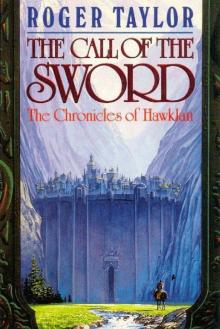 The call of the sword tcoh-1
The call of the sword tcoh-1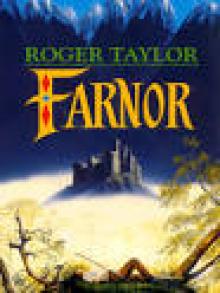 Farnor
Farnor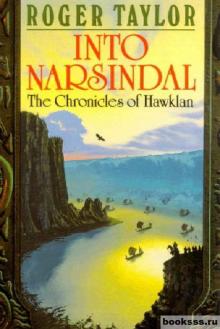 Into Narsindal
Into Narsindal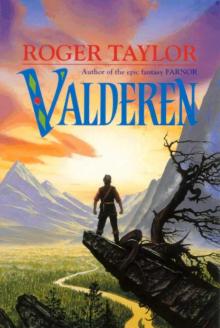 Valderen ft-2
Valderen ft-2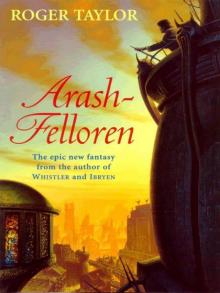 Arash-Felloren
Arash-Felloren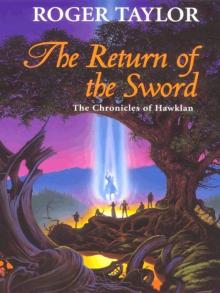 The Return of the Sword tcoh-5
The Return of the Sword tcoh-5![Ibryen [A sequel to the Chronicles of Hawklan] Read online](http://i1.bookreadfree.com/i1/03/26/ibryen_a_sequel_to_the_chronicles_of_hawklan_preview.jpg) Ibryen [A sequel to the Chronicles of Hawklan]
Ibryen [A sequel to the Chronicles of Hawklan]![The Call of the Sword [Book One of The Chronicles of Hawklan] Read online](http://i1.bookreadfree.com/i/03/24/the_call_of_the_sword_book_one_of_the_chronicles_of_hawklan_preview.jpg) The Call of the Sword [Book One of The Chronicles of Hawklan]
The Call of the Sword [Book One of The Chronicles of Hawklan]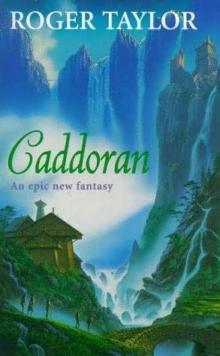 Caddoran
Caddoran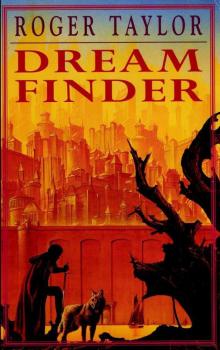 Dream Finder
Dream Finder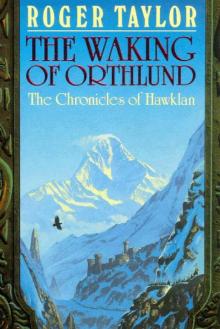 The Waking of Orthlund
The Waking of Orthlund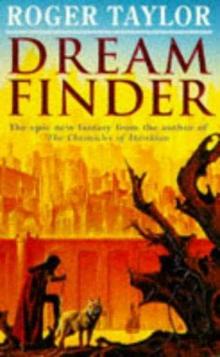 Dream Finder cohs-1
Dream Finder cohs-1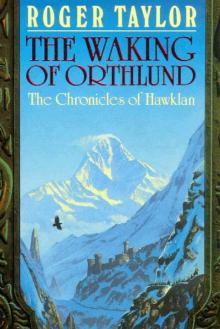 The waking of Orthlund tcoh-3
The waking of Orthlund tcoh-3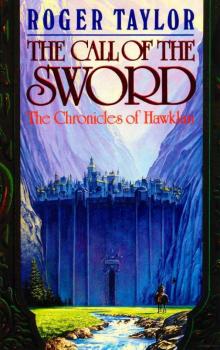 The Call of the Sword
The Call of the Sword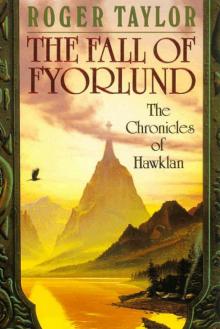 The fall of Fyorlund tcoh-2
The fall of Fyorlund tcoh-2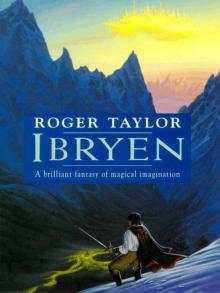 Ibryen
Ibryen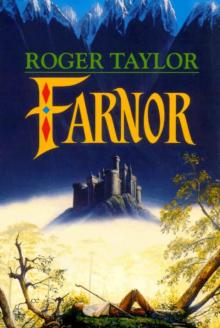 Farnor ft-1
Farnor ft-1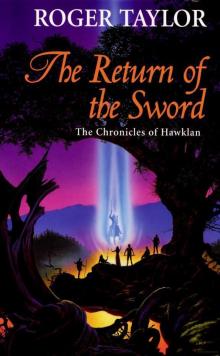 The Return of the Sword
The Return of the Sword![Into Narsindal [Book Four of The Chronicles of Hawklan] Read online](http://i1.bookreadfree.com/i2/04/06/into_narsindal_book_four_of_the_chronicles_of_hawklan_preview.jpg) Into Narsindal [Book Four of The Chronicles of Hawklan]
Into Narsindal [Book Four of The Chronicles of Hawklan]![Valderen [The Second Part of Farnor's Tale] Read online](http://i1.bookreadfree.com/i2/04/05/valderen_the_second_part_of_farnors_tale_preview.jpg) Valderen [The Second Part of Farnor's Tale]
Valderen [The Second Part of Farnor's Tale]![The Fall of Fyorlund [Book Two of The Chronicles of Hawklan] Read online](http://i1.bookreadfree.com/i2/04/08/the_fall_of_fyorlund_book_two_of_the_chronicles_of_hawklan_preview.jpg) The Fall of Fyorlund [Book Two of The Chronicles of Hawklan]
The Fall of Fyorlund [Book Two of The Chronicles of Hawklan]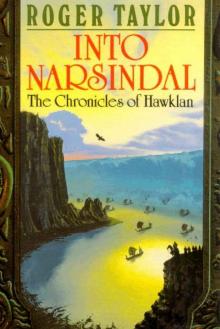 Into Narsindal tcoh-4
Into Narsindal tcoh-4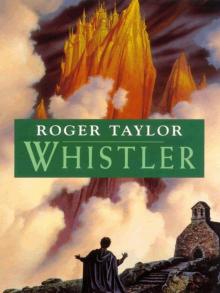 Whistler
Whistler![Whistler [A sequel to The Chronicles of Hawklan] Read online](http://i1.bookreadfree.com/i2/04/12/whistler_a_sequel_to_the_chronicles_of_hawklan_preview.jpg) Whistler [A sequel to The Chronicles of Hawklan]
Whistler [A sequel to The Chronicles of Hawklan]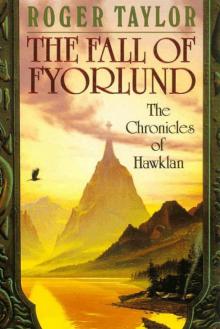 The Fall of Fyorlund
The Fall of Fyorlund![The Waking of Orthlund [Book Three of The Chronicles of Hawklan] Read online](http://i1.bookreadfree.com/i2/04/11/the_waking_of_orthlund_book_three_of_the_chronicles_of_hawklan_preview.jpg) The Waking of Orthlund [Book Three of The Chronicles of Hawklan]
The Waking of Orthlund [Book Three of The Chronicles of Hawklan]